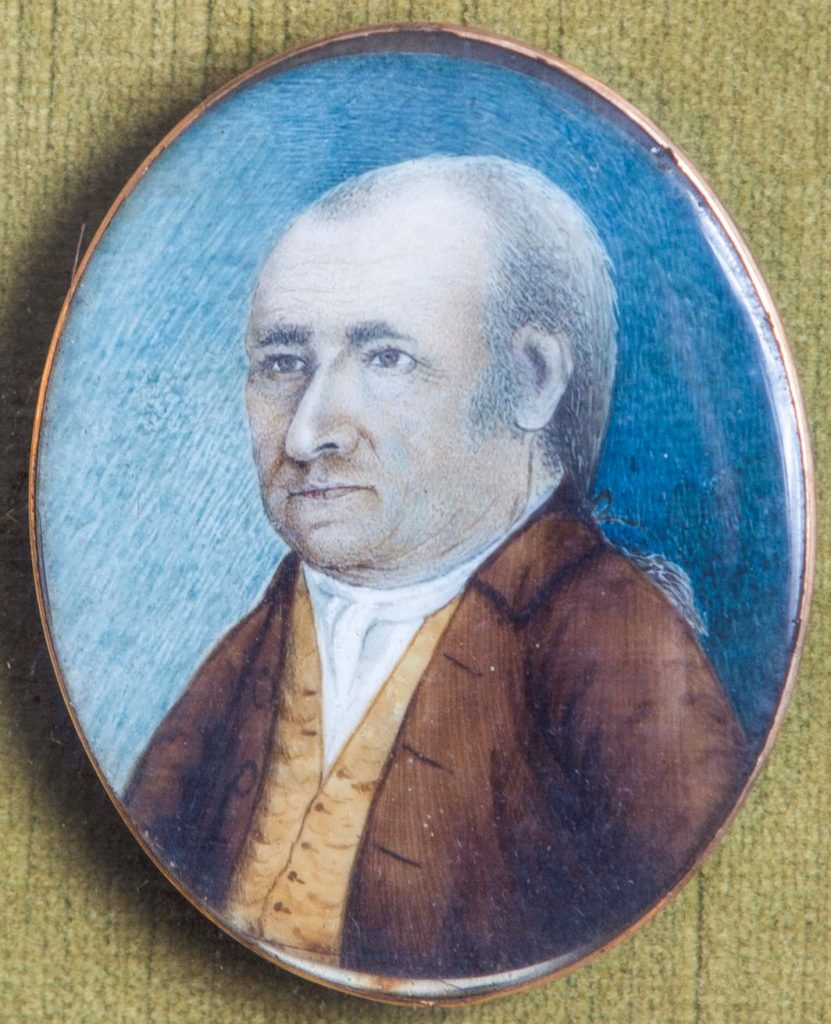The son of German immigrants Benjamin and Perla Sheftall, Mordecai Sheftall was born and raised in Savannah, Georgia. Arriving two years before his birth, his parents came to America on the William and Sarah, sailing from London, together with a few dozen Jewish immigrants who would form the core of the Savannah Jewish community, founding congregation Mickve Israel. When Mordecai was three, his mother died, and his father soon remarried to Hannah Solomons, three half-siblings soon following. Mordecai received Jewish instruction from his observant father, and when it was time for his bar mitzvah, they sent for books and tefillin from England.
Sheftall went into tanning and trading deerskin, and by the time he was eighteen, he was able to purchase fifty acres of land near Savannah. He became a very successful merchant, with trading partners in Philadelphia, Charleston, and the Caribbean. In the early 1760s he began raising cattle on a two-thousand-acre farm, worked by nine slaves.
In 1761 he married Frances Hart, an immigrant from Holland, and they had six children. Like his father, Sheftall was an observant Jew and devoted to Mickve Israel. Services, for a number of years, were held in his house. Together with his brother Levi, he donated the land for the Jewish cemetery, which for years was known as the Sheftall Cemetery. In 1773 he also donated a piece of land upon which the congregation was to build a synagogue, however those plans were abandoned with the coming of the Revolutionary War.
Sheftall was widely identified with the Patriot cause: he was vocal in his opposition to the Stamp Act in 1765, and with the outbreak of the Revolutionary War, he was appointed to Savannah’s Parochial Committee, the Patriot group concerned with civic affairs. In 1777 he was appointed commissary-general to the troops of Georgia, and the following October deputy commissary of issues in South Carolina and Georgia. He served as a staff officer in the Continental Line of the Georgia Brigade, for which Major General Robert Howe bestowed on him the rank of colonel. Sheftall appointed as his assistant his fifteen-year-old son, Sheftall Sheftall.
In 1778, when the British attacked Savannah, Sheftall not only participated in the defense of the city, but he provided a significant loan to the Americans. Savannah fell, and Sheftall and his son were captured by the British. Refusing to renounce their loyalties, they were locked up on the prison ship Nancy. Sheftall was mocked by his British captors for refusing to eat pork, and they rubbed his utensils with pork as a test of his religious mettle. They were released in June 1779, only to be sent the island of Antigua. They finally made their way to Philadelphia, and during his sojourn there, Sheftall went into shipping, even trying his hand at privateering.
Meanwhile, his family had fled Savannah for Charleston and had become immiserated by the lack of income and the British seizure of much of their property. Yet they managed to travel to Philadelphia, where everyone reunited in 1781. When the British vacated the Savannah in 1782 the family returned, but they had lost much, and Sheftall’s loans were never repaid. Nevertheless, they were able to rebuild their life. In 1790 Sheftall became president of Mickve Israel, a position he would hold for five years.
